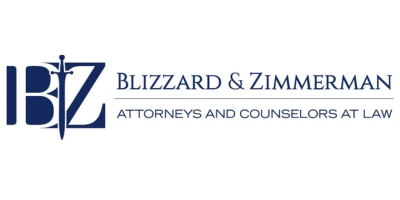
Well, when it comes to hire a criminal defense attorney, it’s crucial to find someone who can provide you with the best possible legal representation. What are some steps you can take to help you find and hire the right criminal defense attorney for your needs?
Start By Doing Research
By researching criminal defense attorneys in your area you will be able to begin to narrow down who to contact for your case. You need to look for attorneys who specialize in the specific area of criminal law relevant to your case. Such as drug offenses, assault, or white-collar crimes. Check out their websites, online directories, and state legal referral services for information on their background, experience, and track record.
In Texas, lawyers are board certified by the Texas Board of Legal Specialization. The general requirements are pretty extensive. There are then special requirements to become board certified in criminal law. Then there are other special requirements for an attorney to become board certified in criminal appellate law.
Attorney Jacob Blizzard here in Abilene, TX is among only 87 lawyers out of 100,000 in Texas who is board certified in both Criminal Law and Criminal Appellate Law. His profile on the Texas Board of Legal Specialization website: https://www.tbls.org/profile/24068558
Jacob has been practicing since 2010, representing individuals accused of any state or federal crime, also clients with appeals and post-conviction writs of habeas corpus, 11.07 writ of habeas corpus. View a sampling of his successful results.
He has won federal criminal cases out of the Abilene, TX, San Angelo, TX, and Lubbock, TX, divisions notoriously “law and order” oriented divisions of the Northern District of Texas. He has also successfully won numerous state criminal cases, including capital murder.
- In your research, does the attorney you’re looking at take cases to trial or does it seem they just plea cases out?
- Have they only recently started a criminal practice after serving on the prosecution side of the law, either in a state local district attorney’s office or federal criminal prosecutor?
Former Prosecutors Experience is Different
Prosecution experience is very different from criminal defense experience.
In a prosecutor’s role, their primary objective is to prove that the accused is guilty beyond a reasonable doubt.
Prosecutors aim to uphold the law, protect public safety, and seek appropriate punishment for criminal offenses.
Defense attorneys represent individuals accused of crimes and work to protect their client’s rights and ensure a fair legal process. They strongly advocate for their client’s interests and seek to achieve the best possible outcome for them, whether it be a dismissal, reduced charges, or acquittal. Their goal is to create a strong defense strategy and challenge the prosecution’s case.
Check With Friends and Family
By talking to those around you, you can get an idea of what to expect when dealing with a particular attorney. Additionally, they may be able to provide insight into the lawyer’s legal experience and the experience they may have had with a given attorney.
Check Online Reviews
Online reviews can be a great resource for learning more about an attorney’s quality of service. Look for reviews from sources such as Google Reviews, and even Avvo, where lawyers are rated by both other attorneys and clients. Many websites will have client reviews and ratings that will help you make an informed decision about who to hire. Be sure to read these reviews carefully and do further research on any potential hires before moving forward.
It’s a Matter of Trust
When looking for a criminal defense attorney, it is important to find someone you trust and feel comfortable with. That starts in your first sit down with the attorney during a consultation.
Look for an attorney who has experience handling criminal cases similar to yours. Consider factors such as their years of practice, their success rate, and all specialized certifications or training they have in criminal law and criminal appeals. Pay close attention to their actual courtroom experience and whether they have a history of taking cases to trial and if they have been successful. .
After All That, Schedule consultations
Contact the offices of the attorneys you’re interested in and schedule initial consultations. While, any attorneys offer free consultations, you want to consider attorneys who do require a small payment upfront to discuss your case. In some law firms you won’t even talk with the attorney, you may talk to a legal assistant or even a paralegal initially. You do need a one-on-one meeting with a potential attorney to evaluate their communication skills, assess their understanding of your situation, and gauge your comfort level working with them. Does it seem like they are trying to rush through your meeting, not listening closely? Are they aggressive in trying to get you to sign a retainer?
When You hire a Criminal Attorney – Ask Questions!
Typically, many people are afraid of attorneys. You really shouldn’t be afraid as you are looking for an attorney who will best represent you in a court of law. You and even your family’s lives and livelihoods may be affected. When discussing your case with potential attorneys, make sure to ask relevant questions after you’ve outlined what your case involves.
They should also outline several options for you in regard to how he or she suggests you move forward with your case. Keep in mind that every case is different and the fees associated with the representation will vary.
- What strategies might they use to build your case?
- How familiar are they with the laws and regulations that may have an impact on your case?
Asking these questions can help you make a better decision when choosing an attorney for your case.
Be sure to prepare a list of questions to ask during the consultation ahead of time. Inquire about their strategy for your case, potential outcomes, fees and billing practices, and the estimated timeline. Also, ask about their availability and how they will keep you informed throughout the legal process.
Consider Cost and Fees
Discuss the attorney’s fees during the consultation. Some attorneys charge a flat fee, while others work on an hourly basis. Make sure you understand the fee structure and any additional costs that may arise, such as expert witness fees or court filing fees. Consider your budget and the potential value of the attorney’s services when making your decision.
- Are there any additional costs that may be incurred along with the retainer?
- Do they outsource any components of the case or do they handle them in-house?
Communication is Key
Effective communication is essential in any and all attorney-client relationships. You need to evaluate how well the attorney listens to your concerns in your consultation. Evaluate how they explain legal concepts in a way you understand, and respond to your questions.
Choose an attorney who is responsive and keeps you informed about the progress of your case.
Ultimately, trust your instincts when making your decision. Choose an attorney you feel comfortable with and have confidence in their abilities to represent you effectively.
Remember, this information serves as a general guideline for anyone, and when you go to hire a criminal attorney the process may vary based on your specific circumstances and jurisdiction.

